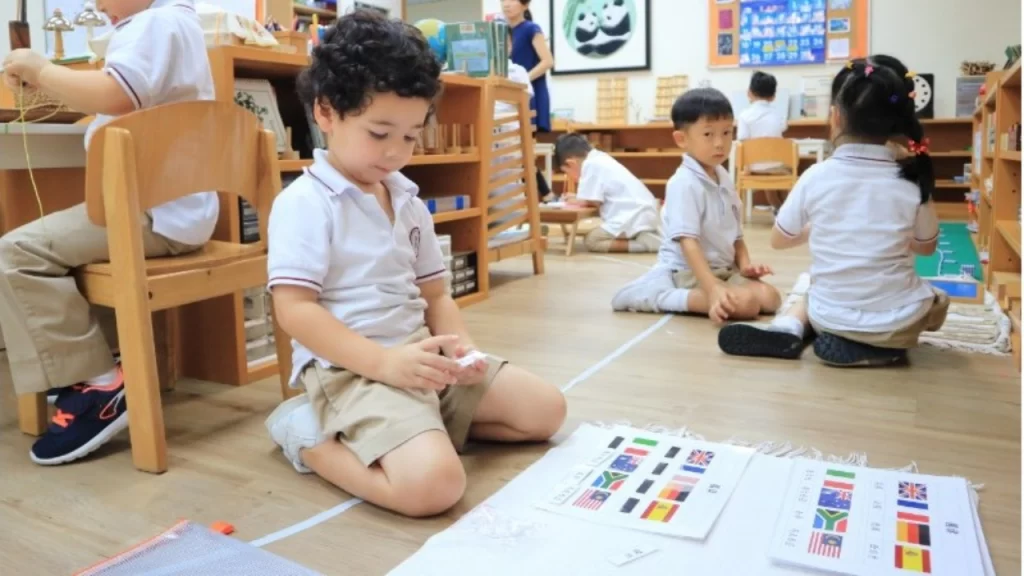
Cultural and Science Learning in a Montessori Classroom
February 14, 2024
In a Montessori environment, “culture” refers to a broad term that encompasses various aspects of human life, society, and the world. Dr Maria Montessori emphasized the importance of exposing children to diverse cultural experiences, including history, geography, science, art, music, and social studies. Here’s what culture means in a Montessori environment:
Geography:
- Study of the World: Children are introduced to geography through materials such as globes, maps, and puzzle maps of continents and countries. They learn about different landforms, ecosystems, and cultures around the world.
History:
- Understanding the Past: Montessori history materials introduce children to the concept of time, historical events, and important figures. Children explore timelines, artifacts, and stories from different periods and cultures.
Science:
- Exploring the Natural World: Montessori science materials allow children to explore scientific concepts through hands-on experiments and observations. They learn about the natural world, life cycles, physical phenomena, and the scientific method.
Art and Music:
- Creative Expression: Art and music are integral parts of the Montessori curriculum, allowing children to explore their creativity and express themselves through various mediums. They learn about different art forms, artists, composers, and musical styles from around the world.
Social Studies:
- Understanding Society: Children learn about social interactions, community helpers, cultural traditions, and customs from different cultures. They develop an understanding of social norms, diversity, and empathy towards others.
Botany and Zoology:
- Study of Plants and Animals: Montessori materials introduce children to the study of botany and zoology, allowing them to explore the characteristics, habitats, and life cycles of plants and animals.
Cultural Celebrations:
- Learning About Festivals: Children learn about cultural celebrations, holidays, and traditions from different parts of the world. They may participate in activities related to festivals such as Chinese New Year, Diwali, Hanukkah, or Eid.
Language and Communication:
- Exploring Different Languages: Montessori environments often expose children to different languages and cultures through language materials, songs, and stories. Children may learn basic greetings, words, and phrases in other languages.
Global Citizenship:
- Promoting Respect and Understanding: Through cultural studies in Montessori, children develop a sense of global citizenship, respect for diversity, and an understanding of interconnectedness among cultures and societies.
Peace Education:
- Fostering Peaceful Coexistence: Montessori culture curriculum includes peace education, promoting conflict resolution, empathy, and peaceful coexistence among individuals and nations.
Overall, culture in a Montessori environment provides children with a holistic understanding of the world, fostering curiosity, appreciation for diversity, and a sense of connection to humanity and the natural world. Through cultural studies in Montessori, children develop the knowledge, skills, and attitudes necessary to become informed, compassionate, and responsible global citizens.


